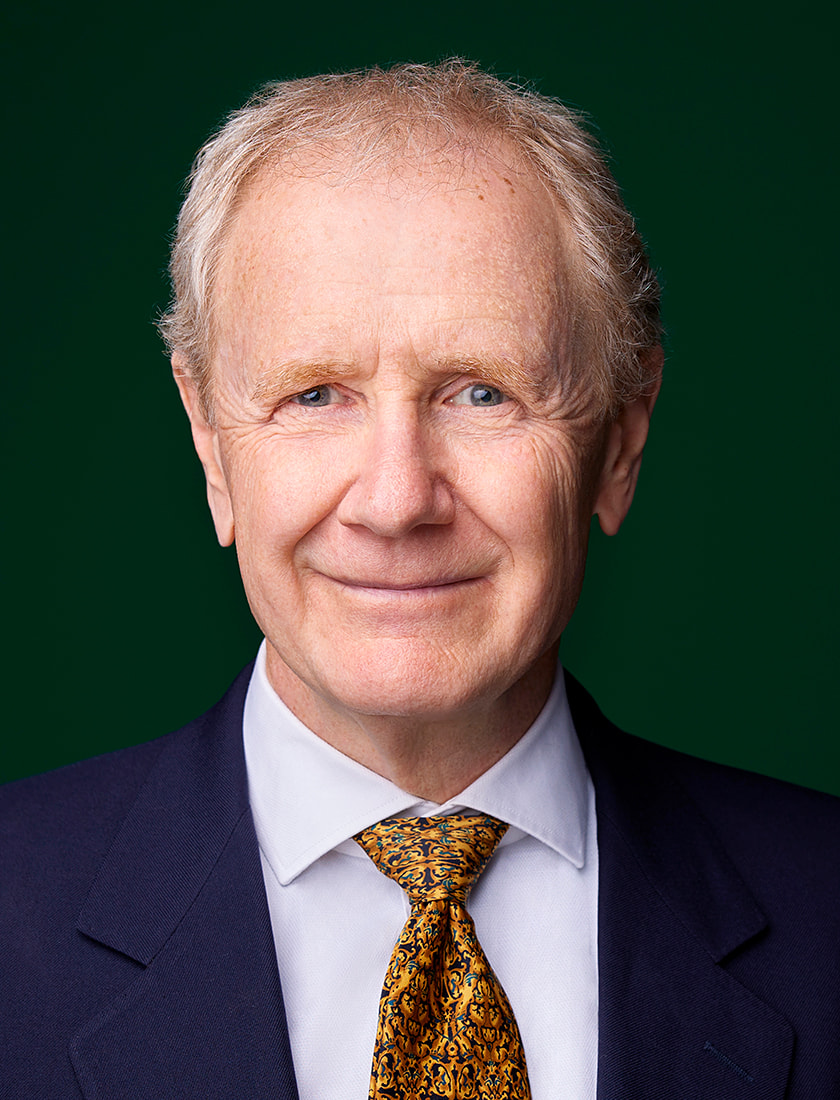“G.S.D.” is a longstanding motto among students of Bruce Ritchie, ’76 BMedSc, ’78 MD. It stands for “getting stuff done” and that’s exactly how their mentor operates.
“I once saw a sign that said, ‘If you’re not living on the edge, you’re taking up too much space.’ And that’s one of the mottos I’ve tried to live by … pushing the limits and being on the bleeding edge of things,” says Ritchie.
“And I get in some trouble because of that.”
The hematologist works doggedly on behalf of his patients, who have rare disorders that can be treated at home with blood or blood products. Ritchie says his employers haven’t always liked his efforts to bring change but they’re happy with the results.
Consider his work with sickle cell disease, a rare abnormality of red blood cells that can lead to anemia, pain, stroke or death. Noticing that pediatric patients were being given red cell exchanges to ward off complications, Ritchie finagled permissions and tackled logistics to start what is now Canada’s largest red cell exchange program for adults. Similarly, stem cell transplants — a risky procedure that offers the one current potential cure for sickle cell disease — weren’t offered to Canadian adults until Ritchie shepherded the first one in 2017.
“I’ve made a career out of looking for areas where we were giving what I thought was sub-sub-optimal treatment to patients,” he says.
“He is not afraid to push hard for change and he does not rest until he knows the very best care can be provided, even if it means changing systems that sometimes stand in the way.”
Barbara Ballermann, professor emeritus, former chair, Department of Medicine & Dentistry
Programs have changed patients’ lives
Ritchie founded the U of A’s Comprehensive Rare Blood Disorder Clinic, which started as an addendum to a bleeding disorder program founded by his mentor, John Akabutu. Ritchie became director of the merged clinics, which now offer comprehensive care, blood product distribution and tracking, and a program that enables more than 1,000 patients to self-administer blood products at home.
Patients using home treatment say the program changed their lives. Ritchie’s research shows the model saves about $3 million annually in Alberta and could be a game-changer for overburdened outpatient clinics by ensuring “the patients who are in hospital … need to be in hospital.”
Though not ready to retire, Ritchie has reduced his hours from 16 a day to about 10 and is handing the reins to younger colleagues who have their own G.S.D. sensibilities.
With evident pride, Ritchie says: “They’ve all taken the things I’ve done — which were very good — and they’ve made them great.”
Go Deeper
Med school misery
With its high workload and higher-achieving classmates, Ritchie’s early med school days were not pleasant. Then students moved into the wards and Ritchie fell in love with the job. “This ability to figure out clinical problems by talking to people and examining them — it’s pretty marvellous.”
Dad’s bedside manner
School gave him the tools but his obstetrician father taught him the art of being a physician. “He took time, he answered their questions,” Ritchie says admiringly. “And that had a huge impact on me. It’s not rocket science; it’s just simple time and kindness.”
From intel to impact
A self-described “translational researcher,” Ritchie says there’s a need to be a bridge between medical discoveries and treatment for patients. To that end, he puts a high priority on clinical trials. All clinic patients are pre-screened for their willingness to participate in trials, which has made the clinic a global force in trial recruitment. “Our patients are all conditioned. They’re always coming in and asking, ‘Well, what’s new? What’s next?’”

We at New Trail welcome your comments. Robust debate and criticism are encouraged, provided it is respectful. We reserve the right to reject comments, images or links that attack ethnicity, nationality, religion, gender or sexual orientation; that include offensive language, threats, spam; are fraudulent or defamatory; infringe on copyright or trademarks; and that just generally aren’t very nice. Discussion is monitored and violation of these guidelines will result in comments being disabled.